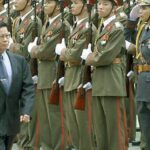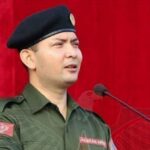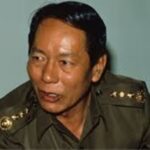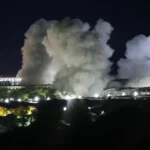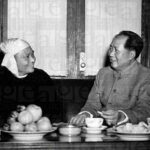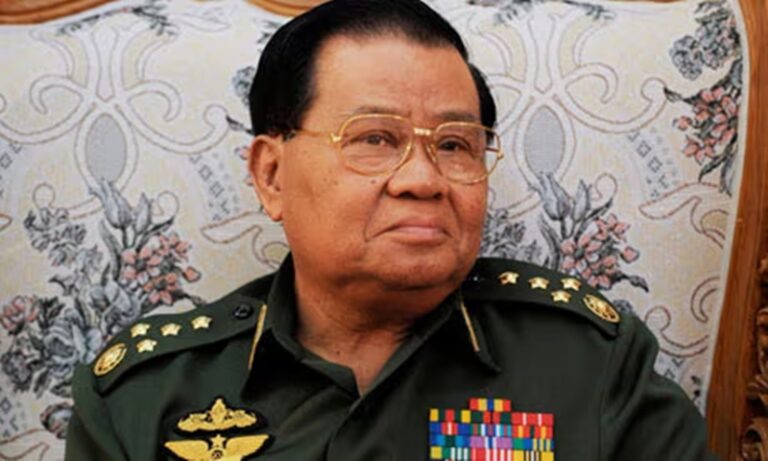
General Than Shwe
Than Shwe (born February 2, 1933) is a retired Burmese army general who held influential positions within Myanmar‘s government. Serving as the chairman of the State Peace and Development Council (SPDC) from 1992 to 2011, he played a significant role in shaping the country’s political landscape. During his tenure, he exercised considerable authority, contributing to a centralized power structure. His governance saw the implementation of various policies aimed at economic development, modernization, and infrastructure improvements. Than Shwe was also involved in efforts to stabilize the country and manage internal conflicts. While his leadership was marked by significant achievements, it also faced scrutiny and criticism, particularly regarding allegations of human rights abuses and restrictions on political freedoms.
Early Life and Military Career
Than Shwe was born in Kyaukse, Upper Burma (now Myanmar). Before joining the military, he worked as a postal clerk. In 1953, he enlisted in the army and served in the psychological warfare department. He participated in counterinsurgency operations against ethnic guerrillas, notably the Karen group. Promoted to captain in 1960, Than Shwe quickly rose through the ranks, becoming a colonel by 1978. In 1980, he was appointed commander of the 88th Light Infantry Division, a position that brought him closer to the capital, Rangoon (now Yangon). He also served as chairman of the regional committee of the Burma Socialist Programme Party (BSPP), the sole legal political party in the country.
Ascension to Power
Following the 1988 pro-democracy uprising, General Ne Win resigned as chairman of the BSPP. The military junta, known as the State Law and Order Restoration Council (SLORC), took control under General Saw Maung. Than Shwe survived internal purges within the military and, in 1992, replaced Saw Maung as chairman of the SLORC, effectively becoming the head of state and government. He also assumed the role of Prime Minister, consolidating his power. In 1997, he renamed the SLORC to the State Peace and Development Council (SPDC). Than Shwe maintained tight control over the military and the country, suppressing opposition and limiting political freedoms.
Governance and Policies
Under Than Shwe’s rule, Myanmar experienced limited economic development and modernization. The government focused on infrastructure projects and sought to stabilize the country by entering into ceasefire agreements with several ethnic armed groups. However, his administration was also marked by widespread human rights abuses, including the suppression of political dissent, restrictions on freedom of speech, and the imprisonment of opposition leaders. The military junta maintained strict control over the media and civil society, stifling democratic movements and international criticism.
Transition and Retirement
In 2004, Than Shwe initiated the construction of a new capital, Nay Pyi Taw, which was officially opened in 2005. The move was seen as an effort to consolidate power and distance the government from Yangon, a city with a history of political unrest. In 2008, a new constitution was ratified, paving the way for a general election in 2010. Than Shwe stepped down from his official positions in 2011, transferring power to a civilian government led by President Thein Sein. Despite his retirement, Than Shwe remained an influential figure behind the scenes, with many speculating about his continued involvement in Myanmar’s political affairs.
Legacy and Criticism
Than Shwe’s legacy is contentious. While some credit him with maintaining stability and initiating limited reforms, others condemn his authoritarian rule and human rights violations. His administration’s refusal to engage in meaningful dialogue with opposition leaders, including Aung San Suu Kyi, and its suppression of democratic movements have left a lasting impact on Myanmar’s political landscape. The military’s continued dominance in politics and the challenges to democratic governance can be traced back to the policies and practices established during Than Shwe’s tenure.

